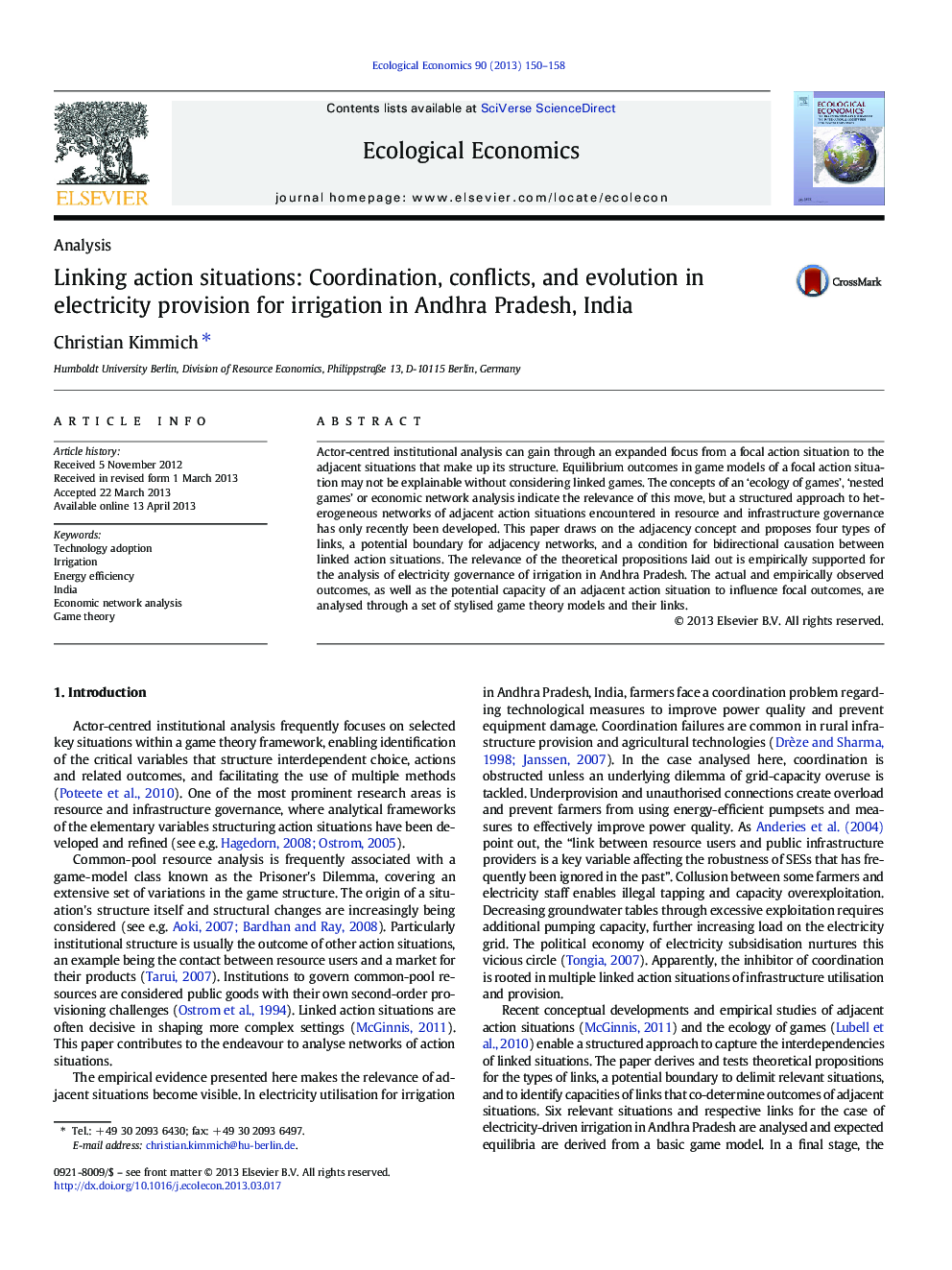| Article ID | Journal | Published Year | Pages | File Type |
|---|---|---|---|---|
| 5049898 | Ecological Economics | 2013 | 9 Pages |
â¢Actor-centred institutional analysis is expanded to linked action situations.â¢Ecology of games, adjacency networks and evolutionary economics support analysis.â¢Types of links, an adjacency boundary, and causation conditions are proposed.â¢Analysis of the electricity-irrigation nexus in India validates the propositions.â¢The findings offer guidance for the systematic analysis of adjacency networks.
Actor-centred institutional analysis can gain through an expanded focus from a focal action situation to the adjacent situations that make up its structure. Equilibrium outcomes in game models of a focal action situation may not be explainable without considering linked games. The concepts of an 'ecology of games', 'nested games' or economic network analysis indicate the relevance of this move, but a structured approach to heterogeneous networks of adjacent action situations encountered in resource and infrastructure governance has only recently been developed. This paper draws on the adjacency concept and proposes four types of links, a potential boundary for adjacency networks, and a condition for bidirectional causation between linked action situations. The relevance of the theoretical propositions laid out is empirically supported for the analysis of electricity governance of irrigation in Andhra Pradesh. The actual and empirically observed outcomes, as well as the potential capacity of an adjacent action situation to influence focal outcomes, are analysed through a set of stylised game theory models and their links.
